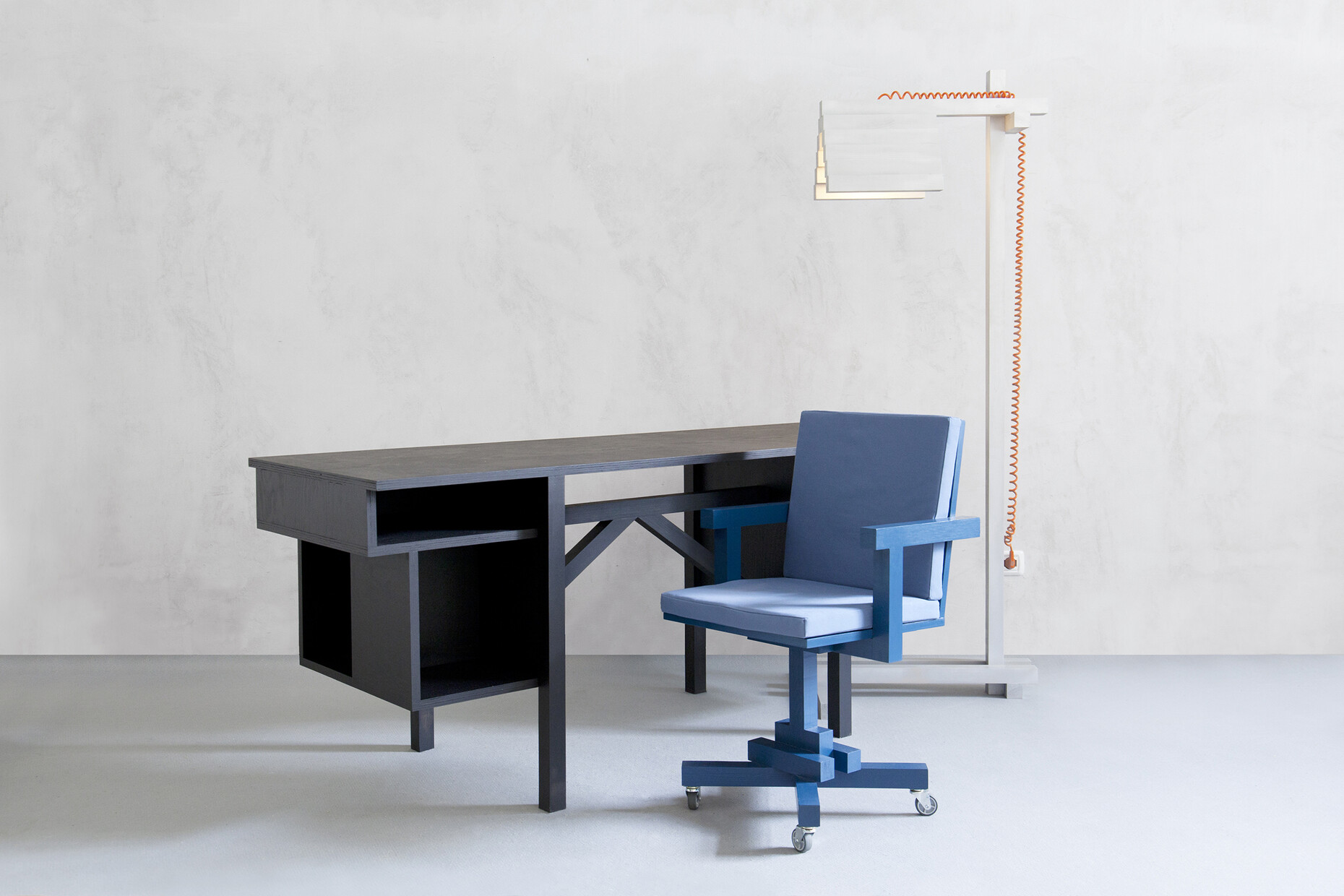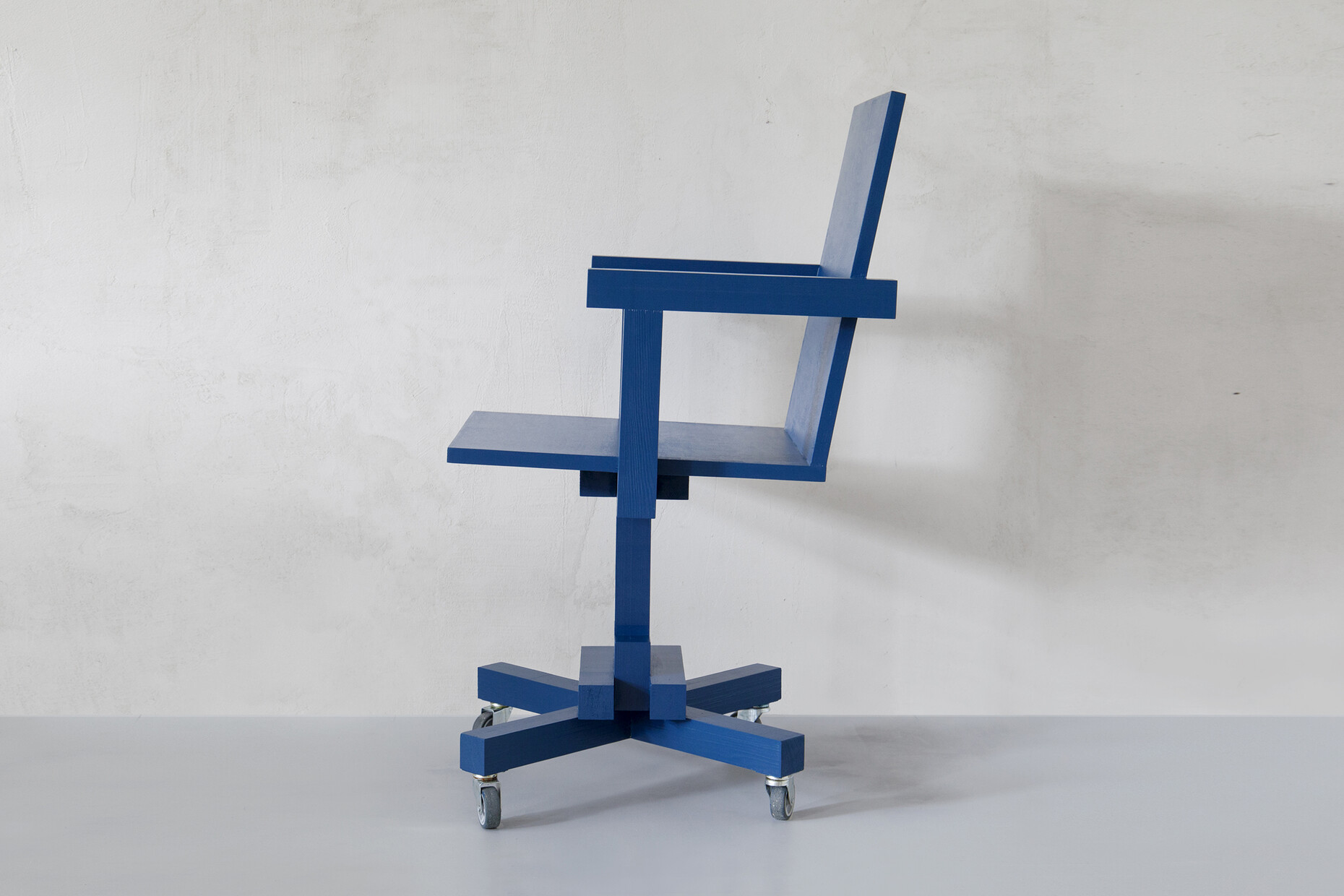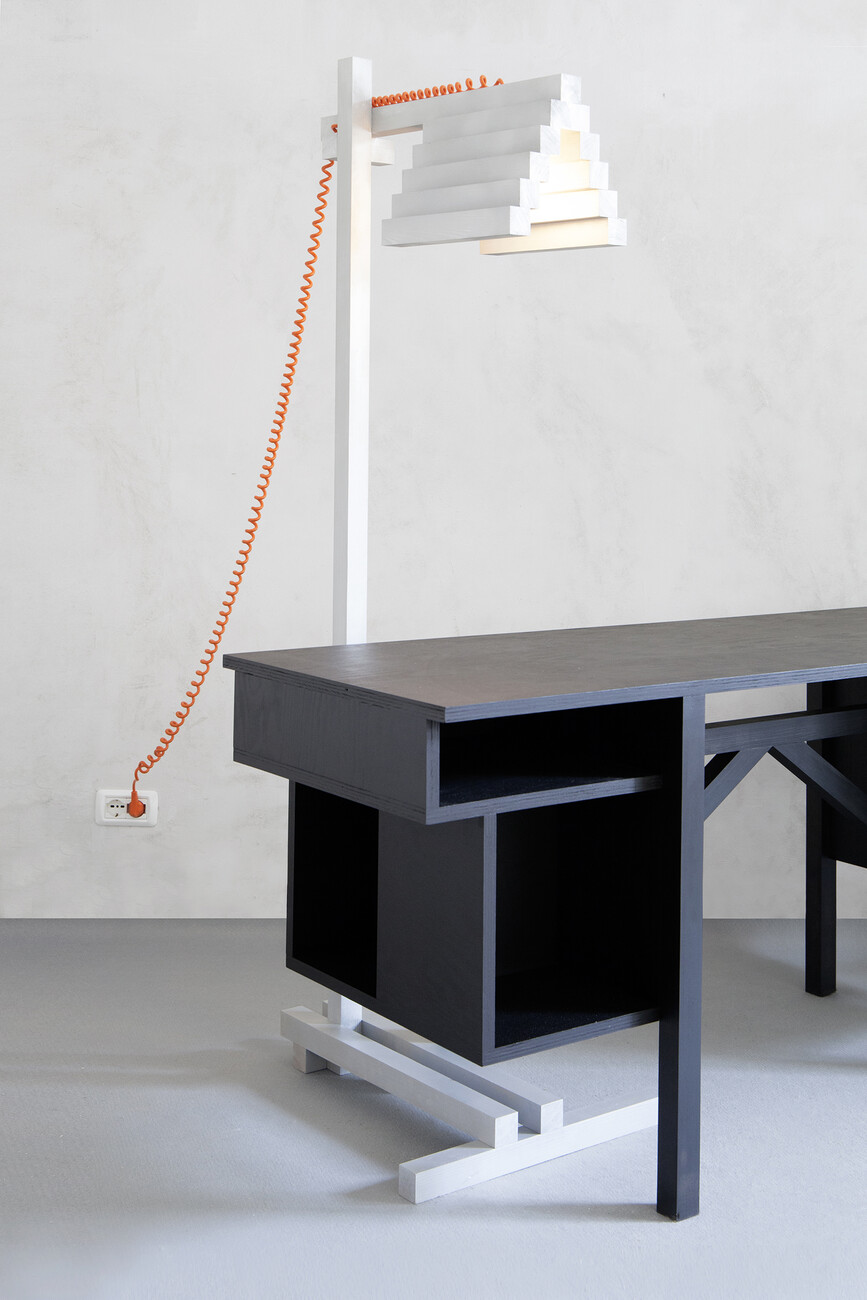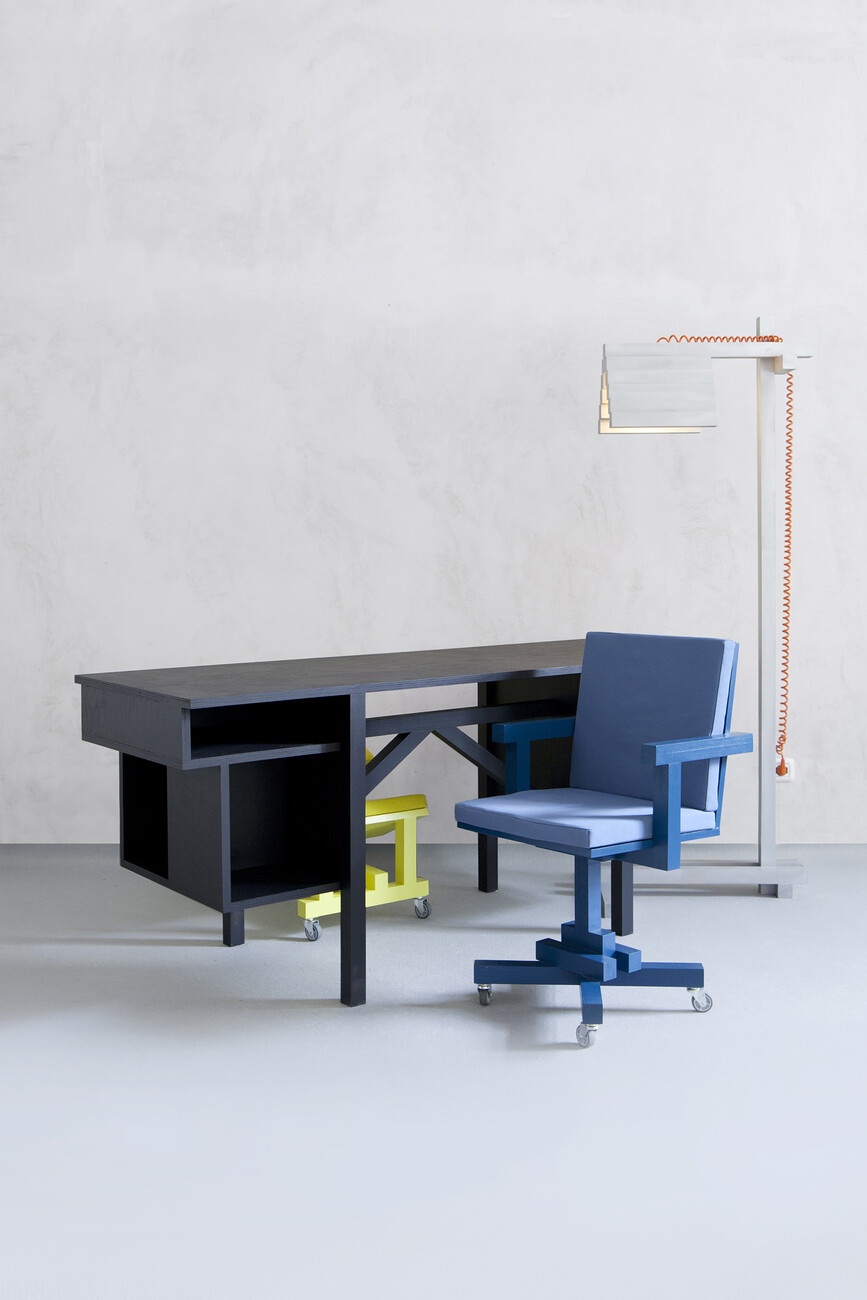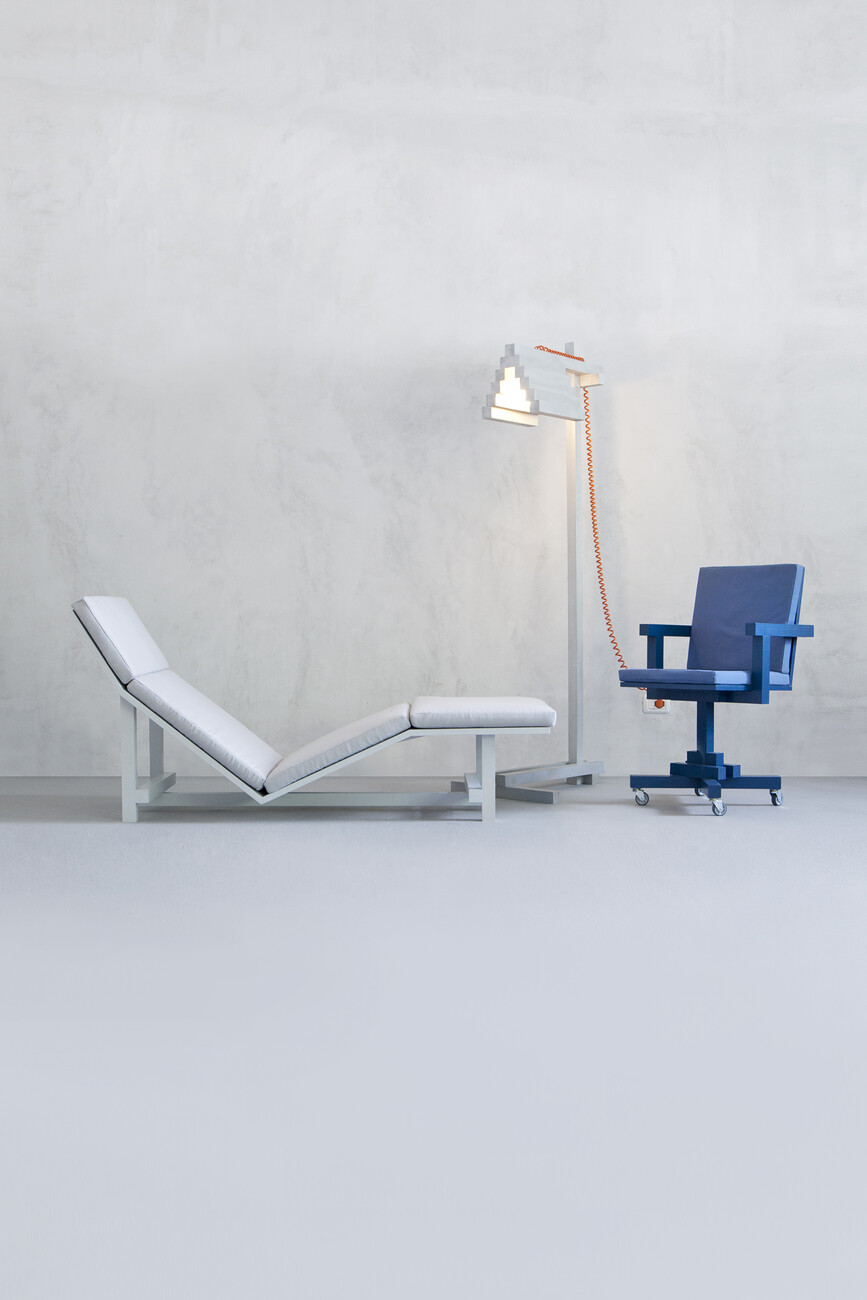Anti-work furniture
Founded in 2011 in Vienna, the designer duo chmara.rosinke is known for a conceptual understanding of design. The creations by Ania Rosinke and Maciej Chmara, who got to know each other during their architecture and design studies at the Academy of Fine Arts in Danzig, are not so much real things and instead more proposals on how we can rethink social and urban circumstances, ideas that are not always realistic, are sometimes artistic and even utopian at heart.
Good timing for new typologies
In recent years, the team has focused on kitchens or rather the act of cooking associated with them. They have conceived a wide range of designs that take up the aspects of hospitality, modularity and mobility. Others designs resulted in pop-up installations with retail functions for renowned fashion firms such as COS, Tommy Hilfiger and Hermès. And their ideas were even put to practical use in a Caritas pilot project in the guise of block-shaped kitchen modules intended to promote interaction between children and older people through joint cooking. Now the designers – and they also conduct their own research and lecture at the Berlin University of the Arts – are questioning the office space and typologies of office furnishing. The timing is right. After all, while owing to the COVID-19 pandemic the office is making ever deeper incursions into our private living space there is also an urgent need for the relevant furniture to be practical and look good. But strangely enough it was not the altered working culture that occasioned the design of the new OFIS Collection comprising a swivel chair, a kneeling stool, desk, chaise-longue and standing luminaire.
Notebooks in the kitchen
On the contrary, Maciej Chmara even criticizes the constant barrage of specialist reporting about the home office. It was nothing unusual in his circles to work from home, he comments. He himself enjoys working in the kitchen and he knows people who adopt a recumbent position to do their daily work. Moreover, the crisis has thrown up more urgent questions than finding the right furniture that you could adjust to suit your needs with just a few tweaks here and there. However, it is a fact that many office employees are currently transforming kitchen tables and sofas into temporary offices. As such, the OFIS Collection by Rosinke and Chmara does offer an opportunity to take a fresh look at swivel chair, desk and work lighting. The queries only go to confirm this. The studio that only produces on demand and in small numbers has to date fitted out just one office space. “The other customers want a professional work setting for their home but one that does not jar with their interior,” explains Chmara.
Correct angle
That said, these furniture items whose design is informed by constructivism are rather edgy, and not only literally. They contrast sharply with the curving, organic, highly flexible, super-soft “sitting machines” that tend to convey the impression their task were to protect you from work or even heal you. By contrast, these office objects composed of square timber and panels and painted in a reduced monochrome color scheme have something artistic about them. They remain true to the model-like character of the duo’s earlier designs. But what previously usually remained a vision now becomes real as authentic, functional furniture. Asked about the ergonomic aspect the designer responds in a considered but casual manner: “I’m aware it is a contentious issue but I’m not a fan of this hyper-ergonomic office furniture. A correct angle is very important, back and neck will tell you soon enough when it’s time to get up and move around.” While the chair does come in two sizes what is more relevant are the very different seating options the collection offers including an option for lying down. “The chaise-longue is a kind of anti-work furniture item,” says Chmara and explains: “In our Calvinist working culture we are very driven by success and efficiency.” He would like to counteract this moral with his design partner with the help of objects that despite their supposed hardness, rigidity and simplicity put the fun and enjoyment of work front and center.
